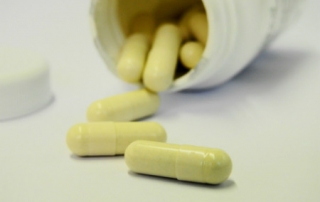Omega-3 Fatty Acids and Perinatal Depression: Maybe or Maybe Not
The omega-3 fatty acids, including eicosapentaenoic acid (EPA) and docosahexanoic acid (DHA), have a broad range of health benefits and may be beneficial for the treatment of mood disorders. Because during pregnancy omega-3 fatty acids are diverted to the developing fetus, some women may develop a deficiency of omega-3 fatty acids during pregnancy. Previous studies have shown that pregnant women with lower levels of DHA may be more vulnerable to depressive symptoms. Several small studies have attempted to use omega-3 fatty acids to treat perinatal depression but have yielded inconsistent findings.




